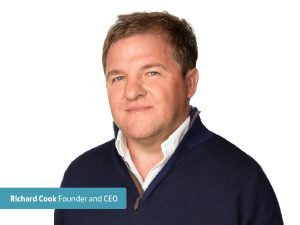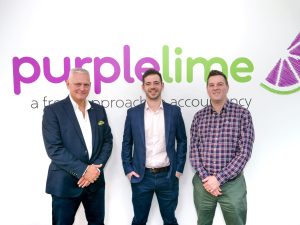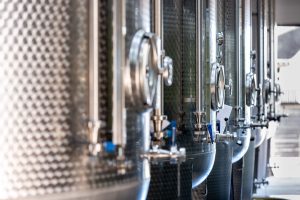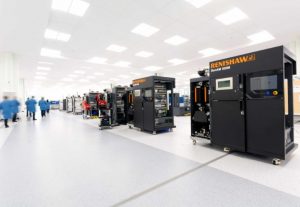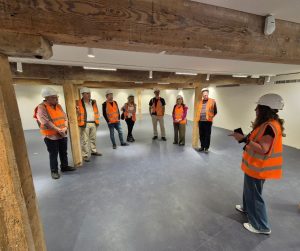Cornish recycling business looking to raise £150,00 through crowdfunding
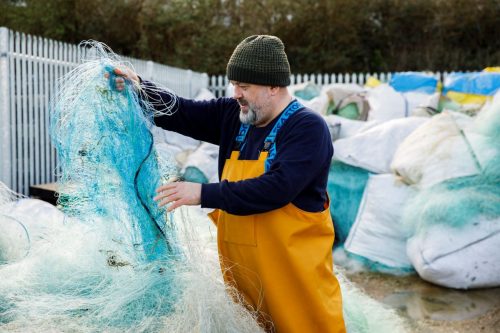
The world’s first recycler to transform end-of-life fishing nets into high-value materials for 3D printing and injection moulding is launching a Crowdcube campaign to fund the next phase of its award-winning growth.
Cornish based Fishy Filaments is looking to raise £150,000.
The funds will be used to expand, develop, and market the firm’s range of high-value filaments and pellets.
This will also include the launch of the world’s first commercially available 100 per cent recycled carbon fibre reinforced nylon 6 powder for use in advanced Selective Laser Sintering (SLS) 3D printing.
Set up in 2016 to recycle old Cornish gillnets into virtually carbon free marine nylon for use in advanced engineering and manufacturing, Fishy Filaments is providing a vital second life solution for end-of-life monofilament net; a problem and costly waste.
Globally, 200,000 tonnes of end-of-life nets are either burnt, buried or discarded at sea each year.
Nets that are burnt release vast amounts of CO₂, while nets that end up in the sea represent a significant and long-lasting danger to both wildlife and shipping as ‘ghost nets’, taking up to 600 years to biodegrade.
Fishy Filaments’ recycling plants will have the ability to address this issue by providing a better end-of-life solution.
Providing a fully traceable source of near carbon neutral materials that can be used in everything from the fashion industry to the automotive sector, Fishy Filaments’ recycled materials are in high demand.
By delivering performance parity with virgin Nylon 6, but with 97-98% less CO₂-eq emissions, Fishy Filaments is creating a new means to tap into the global recycled monofilament fishing net market. This has allowed the company to radically revalue the global revenue potential of that market from around US$150m per year up to US$6bn, of which around US$1bn per year could be directed to the communities that operate its localised recycling plants.
Aided by its new line of high-performance carbon fibre reinforced SLS 3D printing powders, which have the potential to realise a per kilo sales price more than five times that of its other profitable product lines, Fishy Filaments is further widening its markets.
Ian Falconer, founder and chief executive of Fishy Filaments, said: “We are at a very exciting point in the growth of Fishy Filaments.
“We have a proven range of products, an advanced R&D program, and an established and growing base of loyal international customers ranging from Philips Lighting to Mutiny Shaving.
“We’ve undertaken trials or studies with multiple blue-chip customers including L’Óreal, Prada, Ford, and Daimler-Benz, and are currently participating in trials with other major automotive players including BMW. Here, high-performance components that are co-recyclable and allow for Scope 3 emissions to be addressed in novel ways are seen as highly attractive.”
He added: “Our next step is to advance the development and marketing of our next generation of 0rCA® carbon fibre reinforced filaments and powders. This will include the launch of the world’s first 100% recycled nylon PA6-CF powder, which is optimised for the highest level of performance in SLS 3D printing.
“Used to create a vast range of products, parts, and components, these powders represent a market gamechanger and will play a key part in feeding both the growth of the business, and our wider global and social ambitions. This is why our latest Crowdcube fundraise is so important. It holds the key to unlocking a future with global impact.”
Following recent funding, Fishy Filaments is currently scaling its business into full commercial production and is building the first three modules of its fully automated fishing net recycling plant prototype at its Newlyn base.
Aided by a £126,000 loan from the British Business Bank-backed SWIG Finance, and a recent cash grant of almost £50,000 from Cornwall Council’s Growth Hub this automated plant will increase raw material production levels to 20 tonnes per annum in the next year, and then on to 50 tonnes a year.



